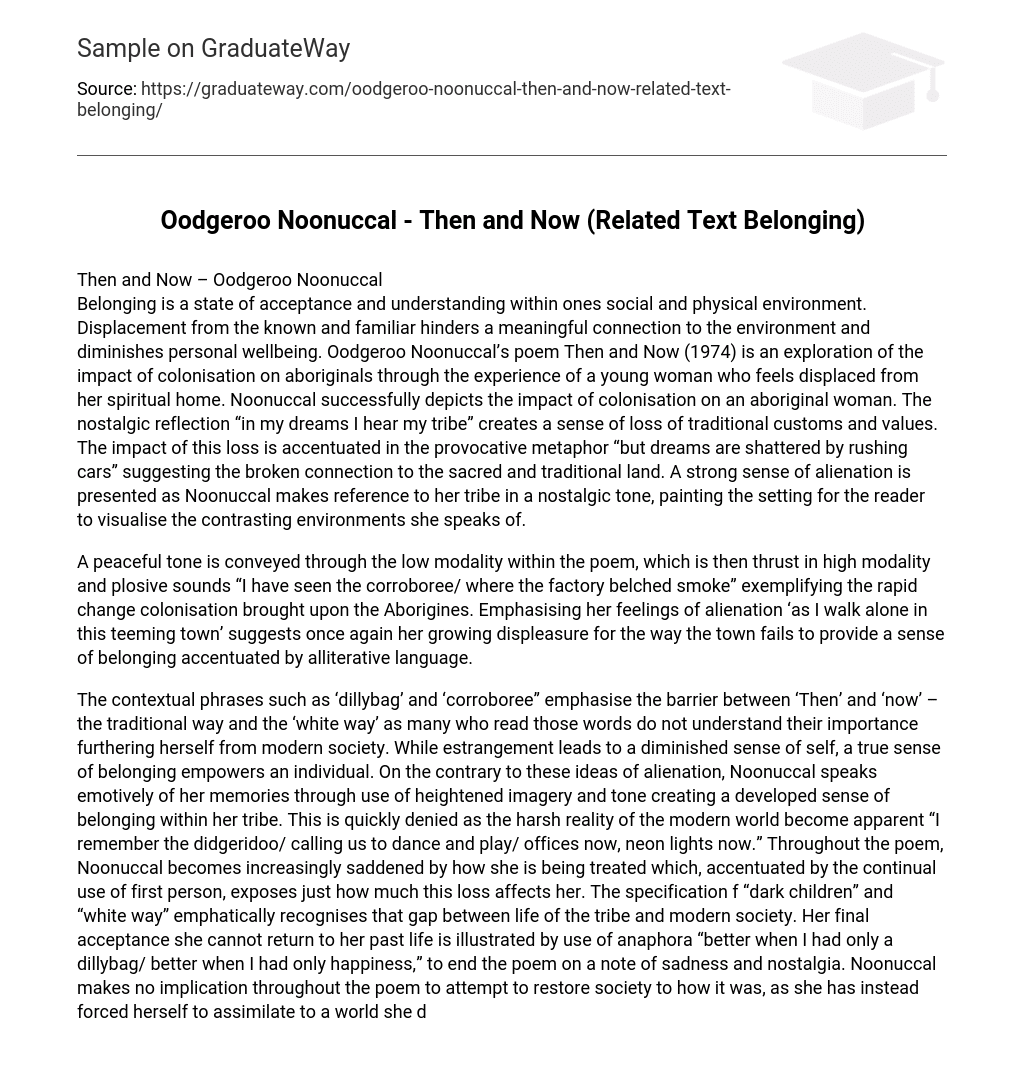Then and Now – Oodgeroo Noonuccal
Belonging is a state of acceptance and understanding within ones social and physical environment. Displacement from the known and familiar hinders a meaningful connection to the environment and diminishes personal wellbeing. Oodgeroo Noonuccal’s poem Then and Now (1974) is an exploration of the impact of colonisation on aboriginals through the experience of a young woman who feels displaced from her spiritual home. Noonuccal successfully depicts the impact of colonisation on an aboriginal woman. The nostalgic reflection “in my dreams I hear my tribe” creates a sense of loss of traditional customs and values. The impact of this loss is accentuated in the provocative metaphor “but dreams are shattered by rushing cars” suggesting the broken connection to the sacred and traditional land. A strong sense of alienation is presented as Noonuccal makes reference to her tribe in a nostalgic tone, painting the setting for the reader to visualise the contrasting environments she speaks of.
A peaceful tone is conveyed through the low modality within the poem, which is then thrust in high modality and plosive sounds “I have seen the corroboree/ where the factory belched smoke” exemplifying the rapid change colonisation brought upon the Aborigines. Emphasising her feelings of alienation ‘as I walk alone in this teeming town’ suggests once again her growing displeasure for the way the town fails to provide a sense of belonging accentuated by alliterative language.
The contextual phrases such as ‘dillybag’ and ‘corroboree” emphasise the barrier between ‘Then’ and ‘now’ – the traditional way and the ‘white way’ as many who read those words do not understand their importance furthering herself from modern society. While estrangement leads to a diminished sense of self, a true sense of belonging empowers an individual. On the contrary to these ideas of alienation, Noonuccal speaks emotively of her memories through use of heightened imagery and tone creating a developed sense of belonging within her tribe. This is quickly denied as the harsh reality of the modern world become apparent “I remember the didgeridoo/ calling us to dance and play/ offices now, neon lights now.” Throughout the poem, Noonuccal becomes increasingly saddened by how she is being treated which, accentuated by the continual use of first person, exposes just how much this loss affects her. The specification f “dark children” and “white way” emphatically recognises that gap between life of the tribe and modern society. Her final acceptance she cannot return to her past life is illustrated by use of anaphora “better when I had only a dillybag/ better when I had only happiness,” to end the poem on a note of sadness and nostalgia. Noonuccal makes no implication throughout the poem to attempt to restore society to how it was, as she has instead forced herself to assimilate to a world she does not understand.





